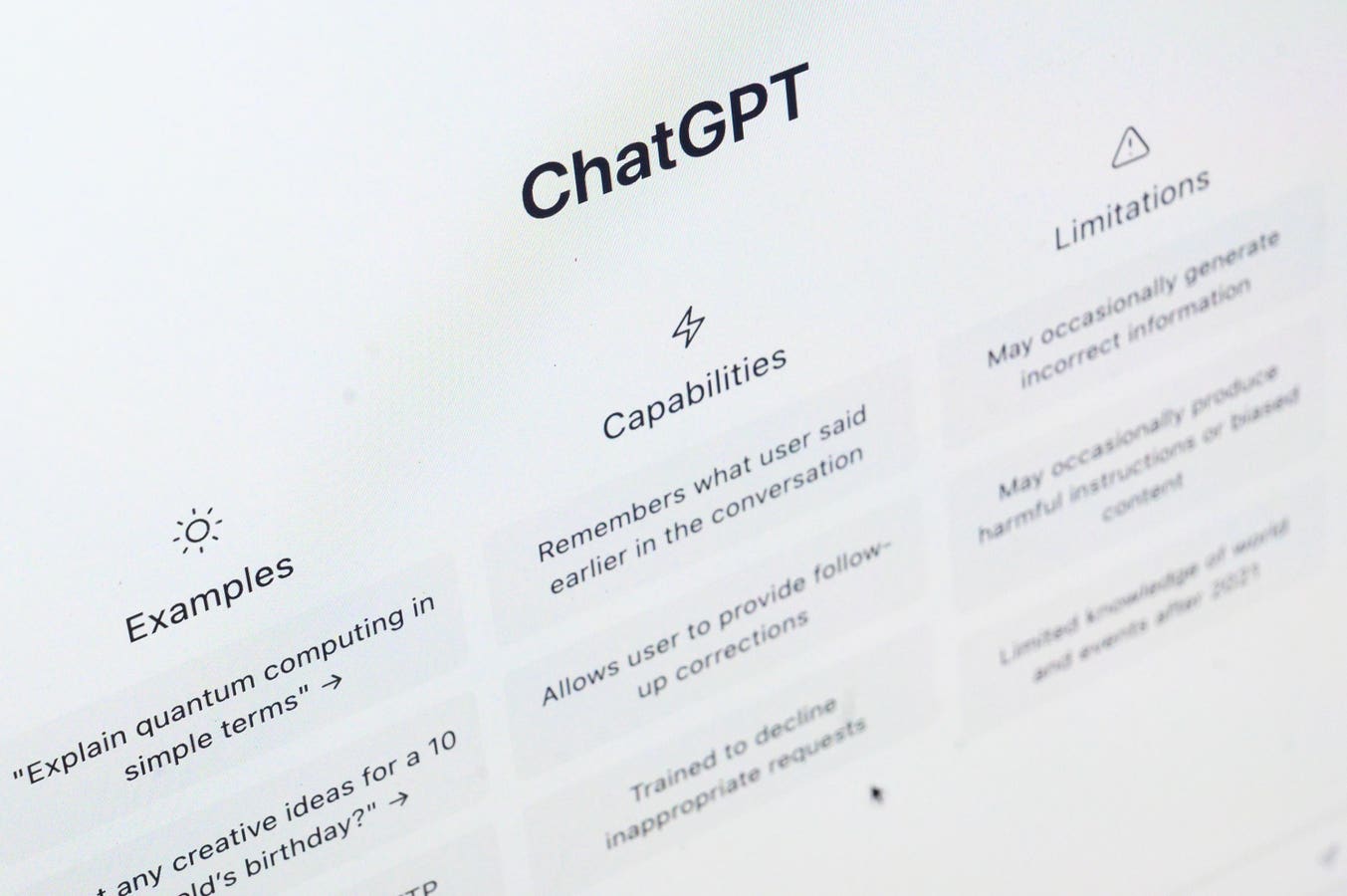LONDON, ENGLAND – FEBRUARY 03: In this photo illustration, the home page for the OpenAI “ChatGPT” … More
OpenAI is rolling out a new slate of features for ChatGPT that will allow the chatbot to perform multistep digital tasks ranging from online shopping to creating presentation slides — a major development in the consumer-facing AI race.
Revealed during a livestreamed event earlier this month, the new agent functionality draws on earlier services released by OpenAI this year: Operator, a tool that lets the AI browse, click and type across websites like a human, and Deep Research, which can conduct extended web-based investigations. Now, the firm is combining those features into a unified experience, enabling ChatGPT to follow instructions and autonomously execute tasks like searching for a product, selecting items based on user preferences and compiling links or even initiating online orders.
The ability to search for and compare products through ChatGPT has existed since at least April 2025, when OpenAI publicly launched its shopping assistant focused on categories like fashion, beauty, and home electronics.
However, the new agent release expands those capabilities significantly by automating full workflows from product discovery to cart curation and laying the groundwork for integrated checkout. The tool is initially rolling out to Pro, Plus and Team subscribers, with broader enterprise and education access expected later this summer, the firm said during the event last week reported by Bloomberg.
Chatbot or Storefront?
OpenAI’s growing focus on e-commerce is bringing up interesting conversations around its business model. The company reportedly also plans to take a commission on purchases completed through ChatGPT — a notable shift for a company that has, until now, relied largely on subscription revenue. The feature, still in development, is being demonstrated to merchants and includes a Shopify integration that would allow users to complete checkouts directly within the ChatGPT interface.
Currently, ChatGPT can recommend products and link out to retailers, displaying a list of merchants based on metadata provided by third-party aggregators, and OpenAI says it intends to “improve the shopping experience” over time. Sources told the Financial Times that OpenAI and Shopify have been showcasing prototypes to potential retail partners.
In their recent demonstration, OpenAI product manager Neel Ajjarapu showed how the agent could browse Etsy for vintage-style lamps under a set budget and return clickable shopping cart links without the user needing to sift through listings manually. Ajjarapu noted that the system is designed to take in real-time feedback and alter its approach mid-task.
The firm was stressed that ChatGPT’s agent capabilities remain a work in progress. “It is far from perfect,” OpenAI Chief Product Officer Kevin Weil was reported stating during the demo. “But I think if we had gone back six months ago or 12 months ago and said this was going to be possible today, we would have been pretty excited about it.”
Productivity Tool or Platform Risk?
AI “agents” — tools that can execute multi-step tasks with limited human oversight — has become a hot area of focus in the generative AI space. Microsoft, Anthropic, Google DeepMind and smaller players are all experimenting with agent frameworks designed to move AI from reactive chatbot to active assistant.
In addition to shopping, the OpenAI agent can draft emails, summarize research and build rough presentation decks — features that align with productivity offerings from Microsoft. Copilot tools are already embedded in Office products like PowerPoint and OpenAI appears to be extending those capabilities with greater user-level task automation.
While the ambition is to reduce friction in daily workflows, early user experiences suggest that some agent tasks can take significantly longer to complete than standard ChatGPT chats — simple assignments may take several minutes, not seconds.
Furthermore, the move into autonomous agents raises obvious questions around AI reliability, commercial influence and consumer transparency. With ChatGPT already personalizing suggestions based on user memory, OpenAI has acknowledged the potential for preferential listing of merchants or products — an area that could further call into question the lines between neutral AI output and commercial recommendation. Advertisers and marketers are already experimenting with new techniques akin to search engine optimization — called “AIO” or “AI optimization” — to try and influence what shows up in chatbot results.
While OpenAI has previously said it had “no active plans to pursue advertising,” CFO Sarah Friar told the FT the firm is evaluating monetization models carefully. CEO Sam Altman, in an interview with Stratechery earlier this year, noted that affiliate-style commissions — such as a 2% fee on purchases made via tools like Deep Research — are on the table.
